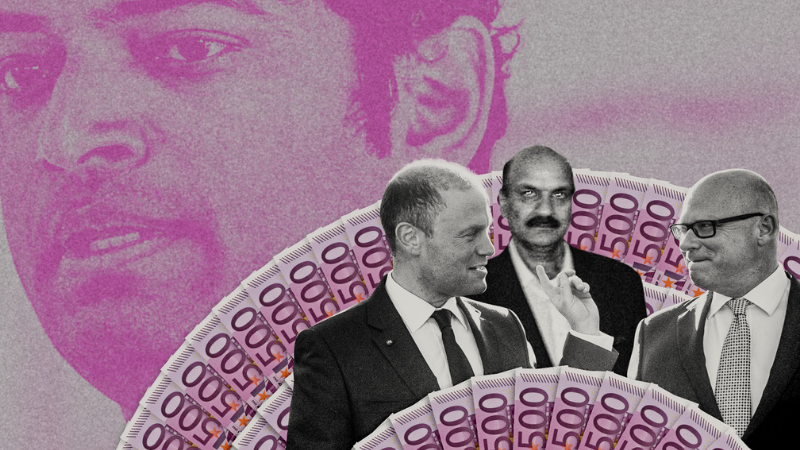In its second published report on the Vitals Global Healthcare (VGH) hospitals deal, the National Audit Office (NAO) slammed the government for failing to secure any of the capital investment milestones for the project by making a “poor choice” when selecting VGH as the concessionaire as well as failing to shift the project’s expenses onto VGH.
“The NAO is of the opinion that several of the failures that emerged at the implementation stage of the concession may readily be traced to the selection of the VGH as the concessionaire, a poor choice that set the stage for what was to come,” the report’s conclusion reads.
“The negotiations that quickly followed selection were similarly flawed, conditioned to an extent by the structural anomalies and organisation of the Ministry for Energy and Health and the general ill-preparedness in terms of what was sought by government through this concession. None of the milestones set were achieved by the VGH,” the report adds.
Another key issue with the concession agreement flagged by the report was the way in which the energy ministry was overseeing the capital investment element while the health ministry was responsible for operational management, creating “ideal grounds for VGH to capitalise on government’s weaknesses”.
“This dichotomy allowed for the concession to remain an unimplementable project, an insurmountable challenge and irreparable situation for the government to manage, whose administrative and political weaknesses were all too readily exploited by the VGH,” the report reads.
The NAO, in its second report analysing the concession, contends that VGH was a poor candidate given its failure to submit its annual audited accounts up until 2020, a fact that did not allow the government to assess the extent of VGH’s financial woes.
In fact, VGH incurred losses for every year under review in the report. The concessionaire, represented in the report as three interlinked companies named VGH Ltd, VGH Management Ltd, and VGH Assets Ltd, registered an increased negative working capital, “indicating a deteriorating financial position in the short-term”.
By way of example, the NAO flagged how VGH Management Ltd, the company receiving revenue from the government’s concession, listed “other expenses” as 74% of its total expenses in 2015 as well as significant sums being written off as directors’ remuneration. In 2017 alone, this remuneration amounted to €6 million.
The ministry for health had repeatedly flagged VGH’s dire financial situation as “an ongoing concern”, arguing that “VGH group’s financial shortfall was evident in the accumulation of €12 million in operating losses, the €32 million due to creditors and VGH’s failure to cough up its tax and National Insurance dues.
As for the project’s expenses, the NAO is also highly critical of the government’s failure to achieve its primary objective of securing “the financing and development of the hospitals through VGH without immediately impacting the public accounts and instead paying for that sourced over the contract term”.
Rather than shifting the project’s risk burden onto VGH, the government rendered itself “impotent in holding the concessionaire to account” by repeatedly changing the contracts in favour of VGH and deviating from the original request for proposals that was issued by the government.
The NAO’s findings clearly outline how the deal was considered to be a burden on public accounts since the government guaranteed set amounts of revenue to VGH without securing commitment and the open-ended clauses which allowed VGH to default on the contract and get the government to pay up for exit clauses.
“Points raised regarding the guaranteed revenue provided by the government irrespective of level of use and the provisions regulating concessionaire events of default resonate with the NAO’s understanding that the balance of risk and reward was not equitably shared between the parties,” the report reads.
“In this case, the government accepted to assume a disproportionate and self-defeating share of the risk, while the VGH benefited from an entirely undeserved reward,” he added.
The report also specifically criticises the government for the secrecy held throughout the negotiation procedures, taking disgraced former health minister Konrad Mizzi to task about his failure to respond to the NAO’s questions throughout the course of its investigation.
“The gravity of this failure was rendered immediately evident in this report through the pivotal role played by Mizzi in this concession,” the report says, outlining how besides being the health minister, he was also on the committee overseeing the concession and how he signed all contracts with VGH barring the emphyteutical deed for the hospital buildings.
Steward Healthcare’s court cases
Meanwhile, Opposition MP Adrian Delia, who had filed a court case aiming to rescind the contract that gave away three of Malta’s public hospitals for little to no return, said he was left “speechless” following a court hearing this morning in which Steward Health Care was supposed to submit evidence of their promised investment in the three hospitals, St Luke’s, Karin Grech and Gozo’s general hospital.
https://www.facebook.com/adriandeliapn/posts/464885005004197
On 23 October, The Shift published an investigation that revealed court documents in which Steward Health Care argued that the VGH concession (which it took over) was a result of fraud and corruption.
Shortly after, the Opposition filed a judicial protest against the government as well as VGH (now Steward Health Care) with the intent of holding the government “legally and politically responsible” for its role in the deal.
“Today, the CEO of Indis Malta, formerly Malta Industrial Parks Ltd, sent in his affidavit. He said he knew nothing and that he has no power because he does what the board of directors tell him to do. Yet again, no proof was actually presented today,” Delia said in a Facebook post.
The full report can be read here.













